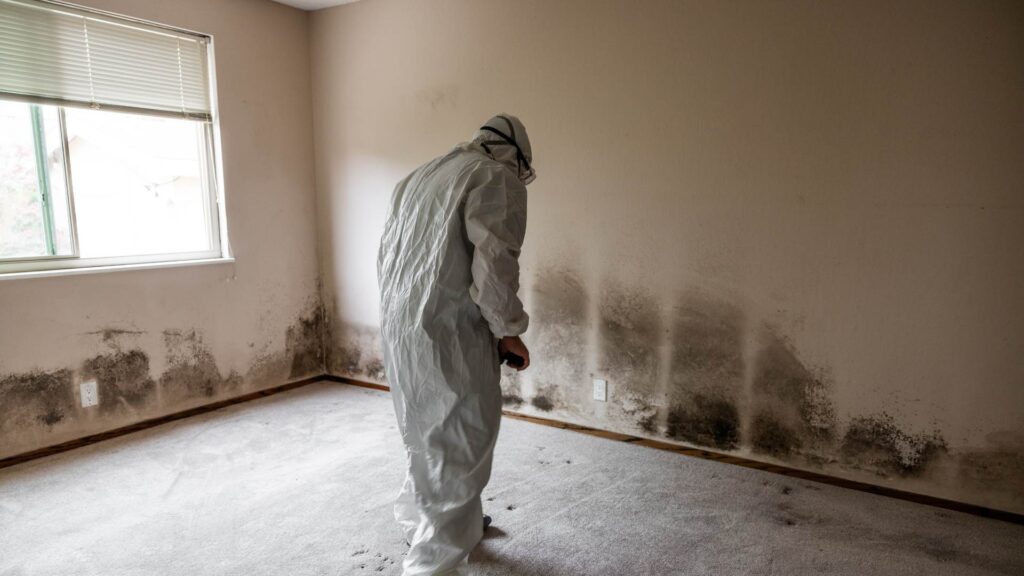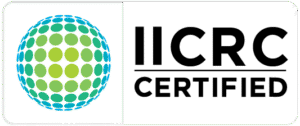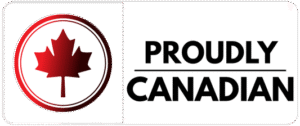Vancouver’s wet weather is great for green spaces and not so great for indoor air. When moisture lingers, mold can grow and release tiny spores into the air. You cannot see them, but you can breathe them. This blog explains why airborne mold is a problem, common symptoms, and the steps to make your air safe again.
What Is Airborne Mold?
Mold releases spores that float through rooms and settle on damp spots. These spores can trigger allergies and can spread growth to new areas. Bathrooms, basements, crawl spaces, and rooms with past leaks are common sources in Vancouver homes and businesses.
Why Airborne Mold Is Dangerous
- It irritates the nose, throat, and lungs and can trigger asthma
- It causes headaches, fatigue, and a musty odor that never fully goes away
- It spreads quickly when humidity stays high
- It lowers indoor air quality and can damage building materials
Symptoms You May Notice
- Sneezing, coughing, itchy or watery eyes
- Worse symptoms at home that improve when you go outside
- Ongoing musty smell even after basic cleaning
- Cold spots or condensation on windows and exterior walls
Common Causes in Vancouver
- Roof or window leaks during long rain periods
- Basement seepage and poor drainage
- Bathroom fans that do not vent outside
- Previous water damage that did not fully dry
Do You Need Air Testing?
Testing helps when you smell mold but do not see it, or when health symptoms continue. Air sampling can confirm spore levels and point to hidden sources behind walls, under floors, or inside ducts.
DIY vs Professional Help
DIY can work for a small spot on tile or metal. Clean the area, lower humidity, and improve airflow. If stains return or the area is larger than a square meter, stop and call a specialist.
Professional help is best when you have recurring odors, visible growth on drywall or wood, past leaks, or health concerns. Certified teams use containment, HEPA air scrubbers, safe removal methods, and proper drying so mold does not return.
How Novaco Tests and Fixes Air Problems
- Inspection and Moisture Mapping We check for leaks and damp materials with meters and thermal imaging.
- Air and Surface Sampling We collect samples for a third party lab to measure mold spore levels.
- Containment and HEPA Filtration We isolate the work area and clean the air while we work.
- Removal and Cleaning We remove contaminated materials where needed and clean remaining surfaces with approved products.
- Drying and Prevention We dry the structure to safe targets and fix the moisture source so the problem does not return.
- Report and Follow Up You receive a clear report and, if requested, a post-remediation air test.
Simple Prevention Checklist
- Keep indoor humidity between 30 and 50 percent
- Use bath and kitchen fans that vent outside for at least 20 minutes after use
- Fix leaks right away and dry wet areas within one day
- Improve airflow behind large furniture on exterior walls
- Clean gutters and direct water away from the foundation
When to Call for Help
Call if you see mold on drywall or ceilings, if the odor returns after cleaning, if family members have breathing issues, or if there was recent water damage. Fast action protects your health and your property value.
Need Help Now?
Call Novaco Restoration 24/7 at 604 400 4800 for mold inspection, air testing, and certified mold remediation in Vancouver.
Frequently Asked Questions
Can I just use bleach to fix mold in the air?
Bleach can lighten stains on hard surfaces but it does not solve airborne spores or hidden moisture. Proper removal, filtration, and drying are needed.
How fast can mold return after cleaning?
If moisture remains, mold can return within days. Fix the water source and lower humidity to stop regrowth.
Do I need to leave my home during remediation?
Often no, since we isolate the area and filter the air. For large projects or sensitive occupants, we can plan a short stay away.
Is air testing always required?
Not always. When the source is clear we can proceed without testing. Testing is useful for hidden issues, health concerns, or proof after work.
How long does professional remediation take?
Small jobs may take one or two days. Larger projects can take three to five days or more depending on size and humidity.
Related services: Mold Remediation





